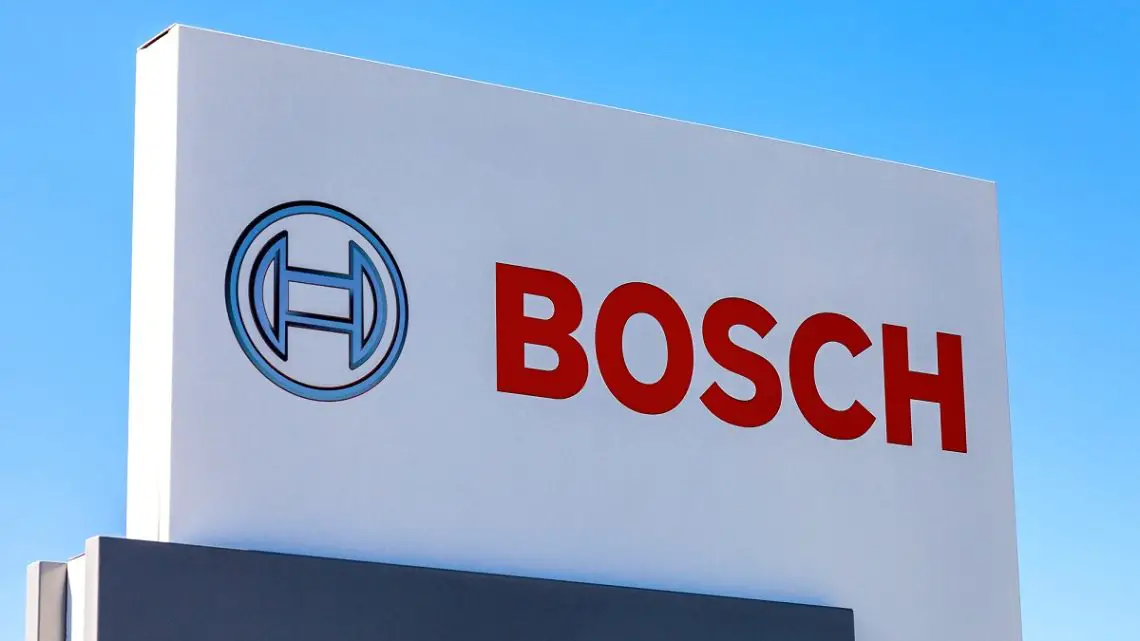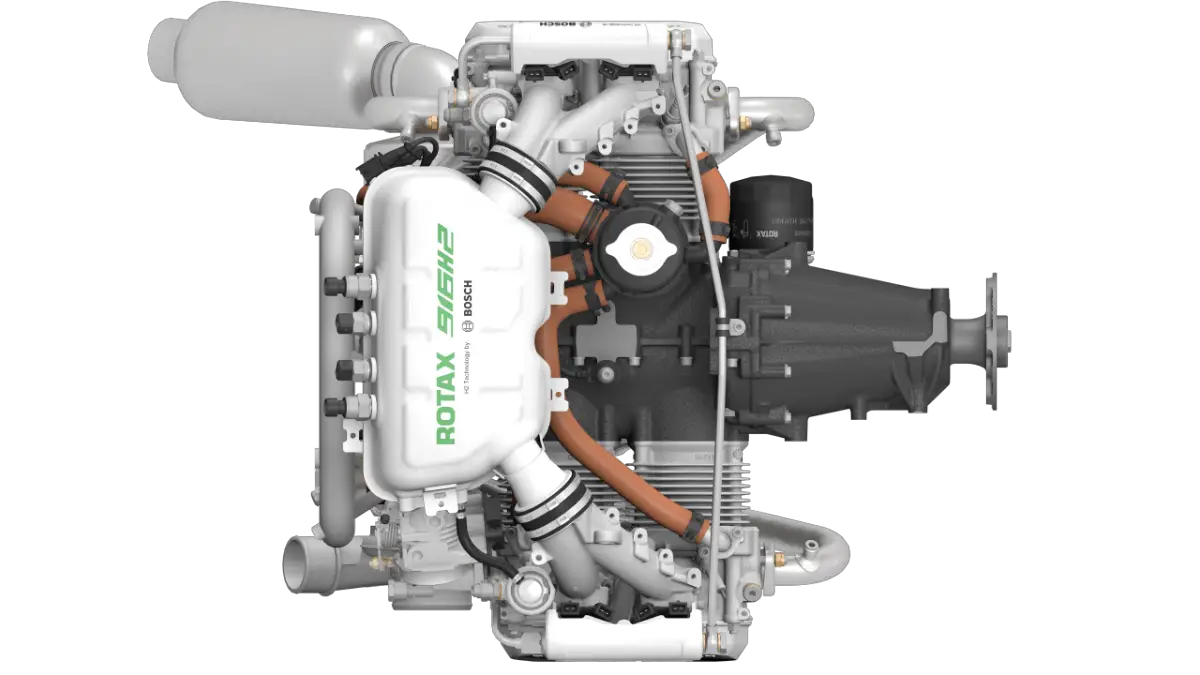
115kW of Green Power: Bosch’s Game-Changing Hydrogen Aircraft Engine
March 31, 2025Bosch Aviation Technology Unveils Groundbreaking Hydrogen Aircraft Engine Concept
The race to decarbonize aviation has reached new heights as Bosch Aviation Technology introduces its hydrogen-powered aircraft engine. Touted as a significant leap in sustainable aviation, this innovation reflects Bosch’s dedication to addressing climate challenges with cutting-edge technology.
Bosch’s Technological Evolution in Aviation
Bosch Aviation Technology, a Vienna-based subsidiary of Robert Bosch AG, unleashes decades of expertise in mobility and hydrogen systems into this new venture. The heart of their latest project is a remarkable adaptation of the proven Rotax 916, a 1.4-liter, four-cylinder gasoline engine developed by the Austrian manufacturer BRP-Rotax for light aircraft.
Instead of designing a fresh engine from the ground up, Bosch chose to modify an established model. This decision isn’t just about efficiency; it’s a calculated move. It streamlines the approval processes, reduces development costs, and accelerates timelines for market readiness. Modifications to enable hydrogen operation took a mere four months, showcasing the company’s agility and deep knowledge of hydrogen systems.
The resulting hydrogen-powered engine delivers an impressive 115kW of output, a performance just 2% shy of its gasoline predecessor. Even at this stage, Bosch claims there’s potential for optimizing power in future prototypes. “By blending proven engine reliability with hydrogen expertise, we’ve created a solution with strong demand potential in future projects,” says Christian Grim, General Manager of Bosch General Aviation Technology.
How the Hydrogen Engine Works
Hydrogen propulsion involves feeding the engine with hydrogen gas rather than gasoline, and the combustion process produces water vapor instead of harmful carbon emissions. But it’s not just about clean emissions. Utilizing Bosch’s advanced fuel injection and hydrogen-specific components ensures a high-power output and reliability that mirrors conventional combustion engines.
All components used for the hydrogen-powered engine were sourced from Bosch’s extensive catalog of production-grade technologies. By repurposing existing solutions and combining them with innovative hydrogen adaptations, Bosch Aviation Technology has achieved a level of performance that positions their system as a leader in the nascent hydrogen aviation space.
Why This Innovation Matters
It’s no secret that aviation is one of the hardest sectors to decarbonize. While electric propulsion has gained traction for smaller aircraft, hydrogen is considered the key to reducing emissions in larger payload and longer-distance operations.
The modified engine aligns with critical political and environmental targets, including the European Green Deal. Using hydrogen derived from renewable sources, this engine all but eliminates particulate emissions and significantly reduces aviation’s carbon footprint.
When you consider that aviation accounts for roughly 2.5% of global CO2 emissions, the significance of Bosch’s innovation is clear. By converting existing engine designs into climate-friendly powerhouses, the company offers a scalable solution that could accelerate industry-wide adoption.
Tackling the Challenges of Hydrogen-Powered Aviation
While the promise of hydrogen aviation is undeniable, it doesn’t come without turbulence. One major obstacle is hydrogen storage. Unlike jet fuel, hydrogen requires specialized cryogenic tanks if stored as a liquid or high-pressure tanks as a gas. These storage systems can be bulky and impact aircraft weight and design.
Then comes infrastructure. Hydrogen refueling stations for planes are still in developmental stages, representing a bottleneck in the transition to hydrogen-powered aviation. Add engine durability and cost concerns to the list, and it’s clear the industry still has hurdles to clear.
Bosch, however, takes a pragmatic approach. By adapting existing engines rather than creating entirely new systems, they aim to minimize costs and sidestep delays caused by rigorous regulatory approvals. While hydrogen vehicles are in their infancy, this modular approach could help set the stage for wider acceptance while the industry irons out infrastructure and technological challenges.
Broader Implications for Aviation and Sustainability
Hydrogen-powered aviation isn’t just a win for the planet; it symbolizes a shift in how we think about transportation engineering. Bosch’s innovative approach demonstrates that sustainability doesn’t have to come at the cost of performance or reliability.
But beyond just aviation, hydrogen propulsion systems have the potential to ripple into other sectors. Freight transport, public transit, and even maritime applications could benefit from the advancements achieved in Bosch’s engine design.
At its core, Bosch’s hydrogen engine signals progress in the global effort to reduce emissions. While it may be a while before we see a fleet of hydrogen-powered jets crisscrossing the skies, each step toward a more sustainable future counts.
A Glimpse Into the Horizon
Bosch Aviation Technology’s hydrogen aircraft engine concept is more than a prototype; it’s a symbol of what’s possible when industry expertise meets environmental urgency. By leveraging existing technologies to meet new challenges, Bosch has given us a glimpse into what tomorrow’s aviation could look like.
Though challenges remain, the direction is clear. Hydrogen, with its clean properties and high energy potential, seems poised to take flight as a critical component of sustainable aviation. Will it revolutionize the skies? The answer may unfold faster than we think. For now, Bosch has raised the bar, and the industry will be watching.



 With over 15 years of reporting hydrogen news, we are your premier source for the latest updates and insights in hydrogen and renewable energy.
With over 15 years of reporting hydrogen news, we are your premier source for the latest updates and insights in hydrogen and renewable energy.